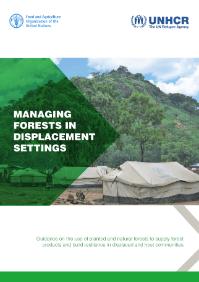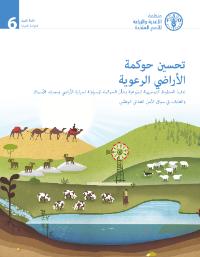Focal point
Location
The Food and Agriculture Organization of the United Nations leads international efforts to defeat hunger. Serving both developed and developing countries, FAO acts as a neutral forum where all nations meet as equals to negotiate agreements and debate policy. FAO is also a source of knowledge and information. We help developing countries and countries in transition modernize and improve agriculture, forestry and fisheries practices and ensure good nutrition for all. Since our founding in 1945, we have focused special attention on developing rural areas, home to 70 percent of the world's poor and hungry people.
Members:
Resources
Displaying 416 - 420 of 5074Jamaica and FAO
Jamaica joined FAO in 1963. In 1978, the Organization established a representation in Jamaica which today also covers
the Bahamas and Belize. Over the years, FAO has partnered with Jamaica to achieve sustainable agricultural and ruraldevelopment, mainly through the Organization’s Technical Cooperation Programme (TCP). Interventions have ranged frompolicy formulation to technical agricultural development and emergency assistance projects. Recent cooperation has placedManaging forests in displacement settings
The massive increase in demand for woodfuel for cooking caused by sudden influxes of refugees and other displaced people is usually the main driver of forest degradation and deforestation in displacement settings. It places enormous pressure on nearby forests and woodlands and is often a source of tension between the host and displaced communities. A lack of sufficient cooking fuel also has an impact on the nutrition and health of vulnerable people in such settings.
Managing forests in displacement settings
The massive increase in demand for woodfuel for cooking caused by sudden influxes of refugees and other displaced people is usually the main driver of forest degradation and deforestation in displacement settings. It places enormous pressure on nearby forests and woodlands and is often a source of tension between the host and displaced communities. A lack of sufficient cooking fuel also has an impact on the nutrition and health of vulnerable people in such settings.
Managing forests in displacement settings
The massive increase in demand for woodfuel for cooking caused by sudden influxes of refugees and other displaced people is usually the main driver of forest degradation and deforestation in displacement settings. It places enormous pressure on nearby forests and woodlands and is often a source of tension between the host and displaced communities. A lack of sufficient cooking fuel also has an impact on the nutrition and health of vulnerable people in such settings.
تحسين حوكمة الأراضي الرعوية
تشير الخطوط التوجيهية الطوعية بشأن الحوكمة المسؤولة لحيازة الأراضي ومصايد الأسماك والغابات في سياق الأمن الغذائي الوطني بصراحة إلى الرعاة باعتبارهم المستخدمين النهائيين للخطوط التوجيهية والمستهدَفين بمساعي تنمية القدرات. وعلى الرغم من التهميش التاريخي والذي غالباً ما يكون مستمراً للرعويين، تم إعداد هذا الدليل الفني للاستجابة للفرص الناشئة التي من شأنها دعم الرعاة وتعزيز حقوقهم في الأراضي والموارد.









